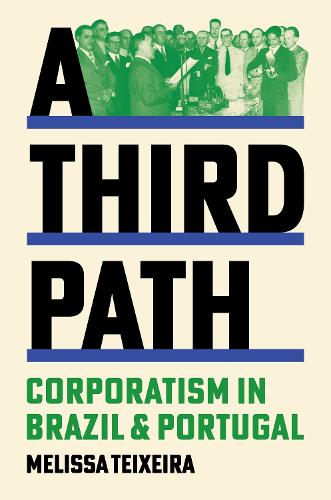
A Third Path: Corporatism in Brazil and Portugal
(Hardback)
Publishing Details
A Third Path: Corporatism in Brazil and Portugal
By (Author) Melissa Teixeira
Princeton University Press
Princeton University Press
26th June 2024
United States
Classifications
Tertiary Education
Non Fiction
Development economics and emerging economies
History: specific events and topics
Political ideologies and movements
Capitalism
International relations
338.981
Physical Properties
Hardback
384
Width 156mm, Height 235mm
Description
How Brazil and Portugal experimented with corporatism as a third path between laissez-faire capitalism and communism
Following the Great Depression, as the world searched for new economic models, Brazil and Portugal experimented with corporatism as a third path between laissez-faire capitalism and communism. In a corporatist society, the government vertically integrates economic and social groups into the state so that it can manage labor and economic production. In the 1930s, the dictatorships of Getlio Vargas in Brazil and Antnio Salazar in the Portuguese Empire seized upon corporatist ideas to jump-start state-led economic development. In A Third Path, Melissa Teixeira examines these pivotal but still understudied initiatives.
What distinguished Portuguese and Brazilian corporatism from other countries experiments with the mixed economy was how Vargas and Salazar dismantled liberal democratic institutions, celebrating their efforts to limit individual freedoms and property in pursuit of economic recovery and social peace. By tracing the movement of people and ideas across the South Atlantic, Teixeira vividly shows how two countries not often studied for their economic creativity became major centers for policy experimentation. Portuguese and Brazilian officials created laws and agencies to control pricing and production, which in turn generated new social frictions and economic problems, as individuals and firms tried to evade the rules. And yet, Teixeira argues, despite the failings and frustrations of Brazil and Portugals corporatist experiments, the ideas and institutions tested in the 1930s and 1940s constituted a new legal and technical toolkit for the rise of economic planning, shaping how governments regulate labor and market relations to the present day.
Author Bio
Melissa Teixeira is assistant professor of history at the University of Pennsylvania.
